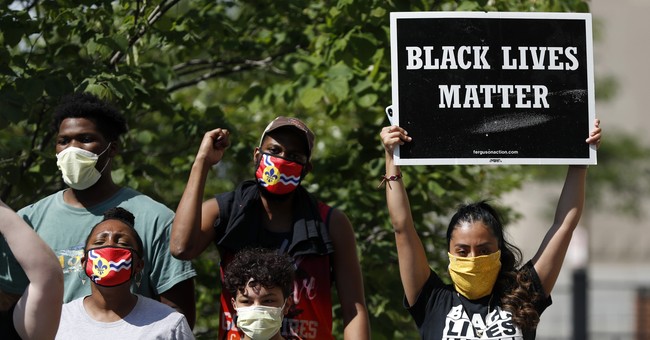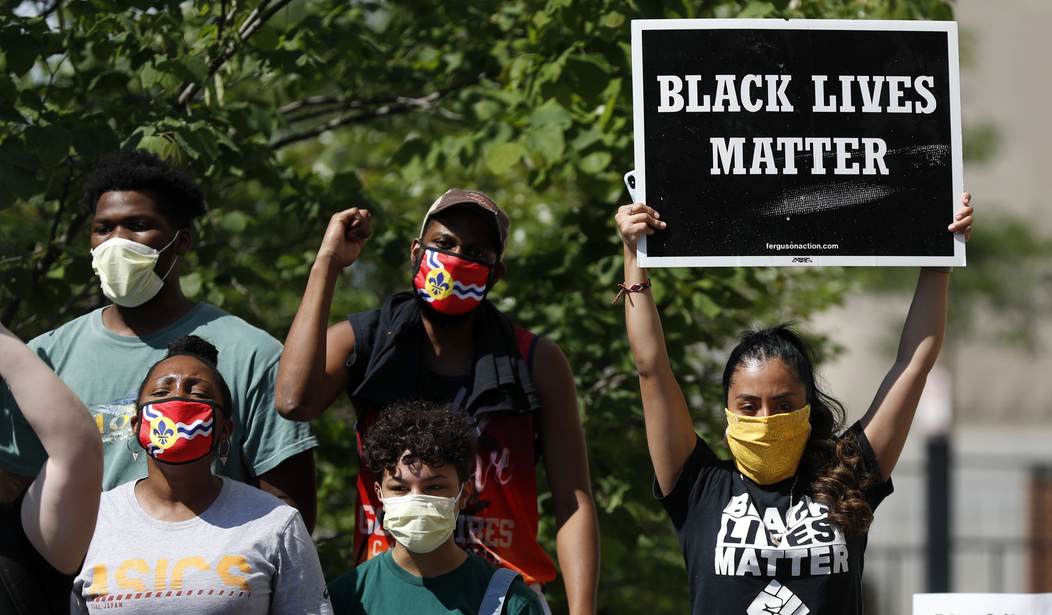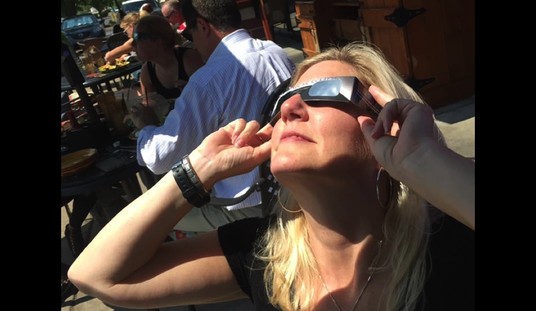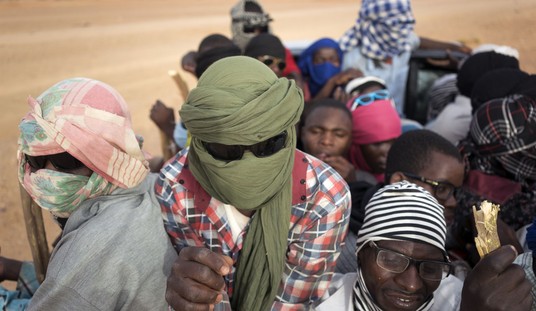
The people telling us to have a serious talk do not want to listen to uncomfortable details.
Yesterday, social media was in full excitement when a private company issued a lengthy mission statement to address the racial strife in the country. Now, normally this type of corporate posturing on social issues is easily dismissed, such as when Playboy Magazine came out this week and announced its efforts to stamp out racism. But the activist manifesto delivered by Ben & Jerry’s Ice Cream is notable in that the company expresses many of the talking points we have been lectured with over the past week, and it manages to push forward many of the myths and inaccuracies concerning the uproar.
In a screed entitled ‘’We Must Dismantle White Supremacy – Silence is not an option’’ the reliably social signaling company received all sorts of applause, delivering a mission statement that strummed the tuning fork of those who are currently outraged at our society. It is a remarkable piece of agitprop in that the company both manages to say all the right things, but manages to get so much wildly incorrect. So, while not intending to vilify the company itself, there is a need to expose many of the falsehoods in its mission statement, as those are many of the same we are hearing from activist circles.
The murder of George Floyd was the result of inhumane police brutality that is perpetuated by a culture of white supremacy. https://t.co/YppGJKHkyN pic.twitter.com/YABzgQMf69
— Ben & Jerry's (@benandjerrys) June 2, 2020
After opening with acknowledgment of the death of George Floyd at the hands of overt police activity, the partners of Ben Cohen and Jerry Greenfield start in with their virtue treatise.
The murder of George Floyd was the result of inhumane police brutality that is perpetuated by a culture of white supremacy. What happened to George Floyd was not the result of a bad apple; it was the predictable consequence of a racist and prejudiced system and culture that has treated Black bodies as the enemy from the beginning. What happened to George Floyd in Minneapolis is the fruit borne of toxic seeds planted on the shores of our country.
This is the language we normally see attached to the messaging of ‘’Systemic racism’’. The problem, however, is one of location. While it sounds great to attribute Floyd’s death to the racism built into the culture, what few are willing to do is analyze that culture. So why don’t we look into the system where this crime took place?
To start, you have as the city Mayor, Jacob Frey, an avowed leftist who follows a string of Democratic liberal leaders. The last time a Republican was elected to run the city was 1957. The police chief of Minneapolis is Medaria Arradondo, a black police official. The federal representative for the city, in Washington, is the famed female POC Ilhan Omar, and the top cop for the state is another POC and former head of the DNC, Attorney General Keith Ellison. Are these the leaders perpetuating the culture of white supremacy?
Just to add to the list, you have Minnesota headed by Democrat Tim Walz, the state is served by two Democrat senators, including Amy Klobuchar who spent years as an acting state attorney in a few offices, and even the sister city of Saint Paul has as its Mayor, Melvin Carter, another POC leader. These would be the people operating the ‘’racist and prejudicial system and culture’’. Looking over these names, note how few have incurred the wrath and blame over the past week, while President Trump has been pointed at as responsible.
Toxic seeds planted on the shores of our country in Jamestown in 1619, when the first enslaved men and women arrived on this continent. Floyd is the latest in a long list of names that stretches back to that time and that shore. Some of those names we know — Ahmaud Arbery, Breonna Taylor, Oscar Grant, Eric Garner, Trayvon Martin, Michael Brown, Emmett Till, Martin Luther King, Jr. — most we don’t.
I need to list other names they apparently do not know.
Justine Ruszczyk Damond. The 40-year-old white woman was killed by black police officer Mohammed Noor, who was convicted of murder last year for her shooting.
Emmanuel Aranda. He is the 24-year-old black man who grabbed a 5-year-old white boy and threw him off of a third-story railing at the Mall of America. After long treatment, the boy recovered from the forty-foot drop.
Adding to this was the number of victims who, last summer, were targeted by groups of Somali residents. These are not just cherry-picked examples of inter-race violence to ‘’balance out’’ the ledger. All of these examples are from Minneapolis. If this racism is built-in, if the system is supposedly inspiring tragedies like the death of George Floyd, how is it that black on white violence is just as pervasive, if not more so?
The officers who murdered George Floyd, who stole him from those who loved him, must be brought to justice. At the same time, we must embark on the more complicated work of delivering justice for all the victims of state sponsored violence and racism.
Justice is, in fact, taking place. Officer Chauvin has already been arrested and charged with murder. US Attorney General Barr is overseeing the investigation, which is moving faster than anyone could expect. This is what makes the calls in the streets for ’justice’ perplexing. It is, in fact, happening. Where the uncomfortable aspect arrives is in this concept of alleged ‘’state-sponsored violence and racism’’.
To arrive at this conclusion, you see the avoidance of that recent case of a black officer convicted of murder. But there are curious details once you look into the metrics of the fatal shootings involving police. It has long been established by FBI statistics that in this country murders of whites by black assailants is usually twice that of whites murdering blacks. But a study of police shootings released last summer had some revealing details.
— Old Holborn ✘ (@Holbornlolz) June 3, 2020
This study, out of Michigan State University indicated that regional crime rates and geographical demographics played a much larger role than expected in the deaths by police. The man behind this study, Professor Joseph Cesario, analyzed the makeup of regions, as well as the ethnicity of the police involved in the shootings and found a curious correlation.
Instead of using population, Cesario analyzed variables such as the race of the police officers, crime rates, and the racial demographics of locations where police shootings happened in 2015. From that, he derived that black and Latino victims of police killings were more likely to have been shot by black and Latino cops, and that ”might not be due to bias on the part of Black or Hispanic officers, but instead to simple overlap between officer and county demographics.”
In other words, in areas where there is a higher concentration of blacks and Latinos, there is also an increase in the number of black and Latino officers. This then takes us to an uncomfortable resolution; those who insist racism is the driving force behind police killings of black victims are assuming the race of the police shooter is almost always white. The statistics do not support their assumption. Ironically, it becomes a prejudicial assessment of police activity, made by those railing against prejudice.
Bringing up these details — acknowledging who has been in charge in Minnesota, noting the black-on-white crime therein, seeing minority cops are shooting minorities — tends to raise the ire of those outraged and calling for change. This presents a problem to one of their central demands. We hear a lot of calls to have a serious dialogue about race in this country, but they resist when these facts are brought into the dialogue. If we are to have a serious discussion about race, then it has to be an honest discussion.















Join the conversation as a VIP Member